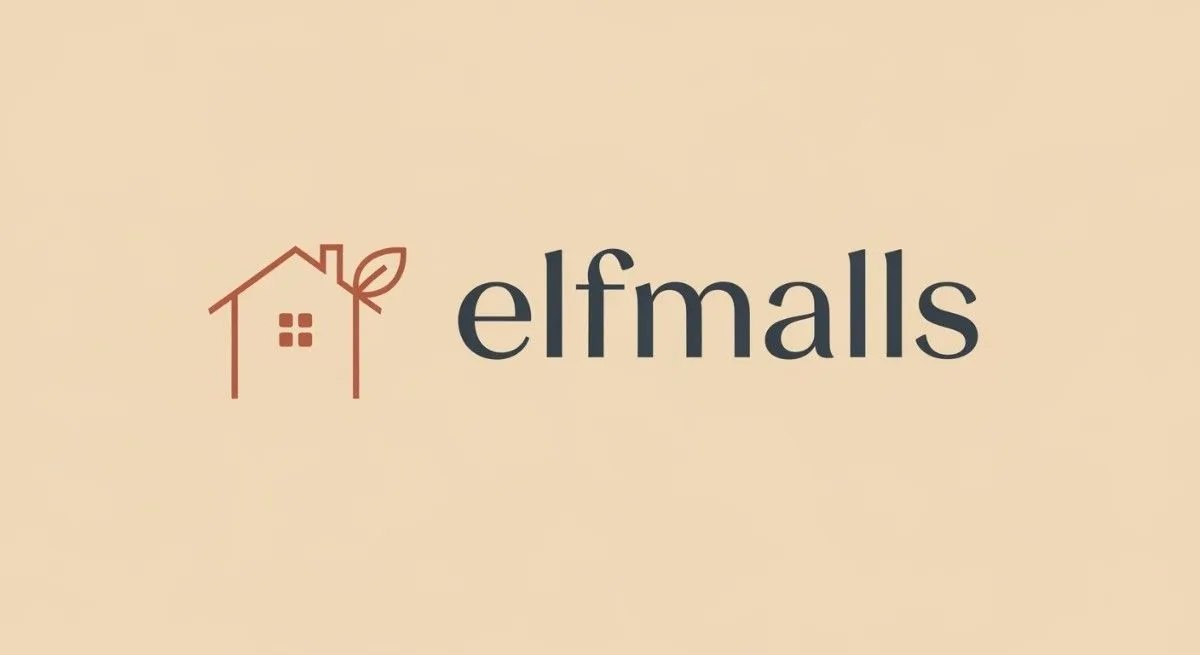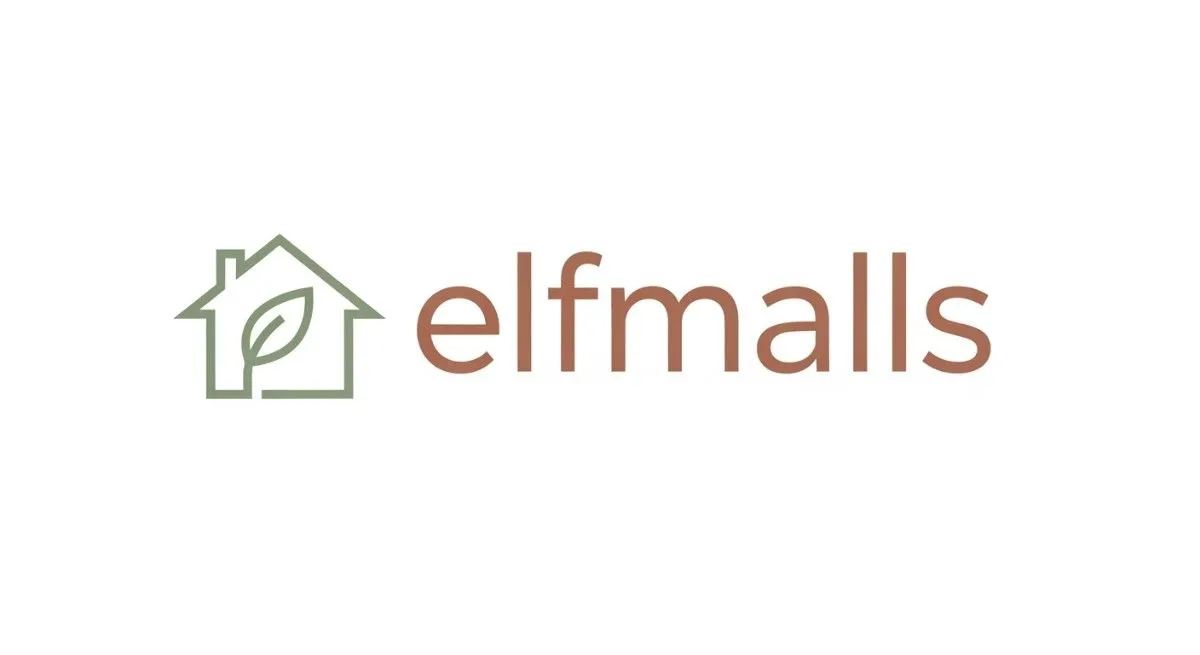Introduction: Turn Your Creative Vision Into a Thriving Business
Have you ever walked into a beautifully decorated wedding reception or corporate event and thought, “I could do this”? If you have an eye for design, love bringing creative visions to life, and dream of being your own boss, starting an event decorating business might be your perfect career path.How to Start a Decorating Business?
The event planning and decoration industry continues to grow steadily, with the global event management market projected to reach substantial figures in coming years. Whether you’re interested in wedding décor, corporate events, or intimate celebrations, there’s never been a better time to launch your decorating business.
This comprehensive guide will walk you through everything you need to know about starting a decorating business, from initial planning and budgeting to acquiring your first clients and scaling your operations. You’ll discover practical steps for launching a home-based event planning business, understand the real costs involved, learn about necessary permits and licensing, and get actionable marketing strategies that won’t break the bank.
By the end of this article, you’ll have a clear roadmap for transforming your decorating passion into a profitable enterprise.
Understanding the Event Decorating Business Landscape
Before diving into the logistics of starting your business, it’s essential to understand what you’re getting into and the opportunities available in this creative industry.
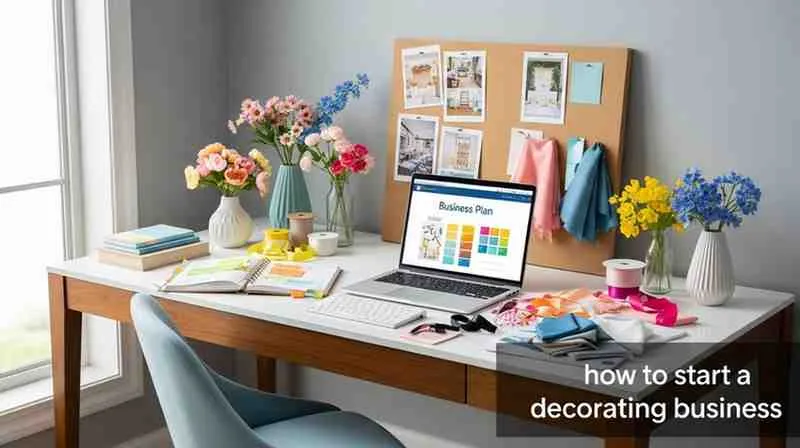
What Does an Event Decorator Actually Do?
Event decorators are creative professionals who transform spaces into memorable experiences. Your responsibilities might include:
- Consulting with clients to understand their vision, theme, and budget
- Creating detailed design proposals and mood boards
- Sourcing and procuring decorative items, florals, linens, and props
- Setting up and installing decorations at event venues
- Coordinating with other vendors like caterers, photographers, and venue managers
- Breaking down and removing decorations after events
The beauty of this business is its flexibility. You can specialize in specific types of events such as weddings, corporate gatherings, birthday parties, baby showers, or holiday celebrations. Some decorators focus exclusively on balloon artistry or floral design, while others offer comprehensive event coordination services alongside decoration.How to Start a Decorating Business?
Market Opportunities and Niches
The event decoration market offers numerous niches where you can establish expertise:
Wedding Decorations: The wedding industry remains robust, with couples investing significantly in creating their dream aesthetic. From rustic barn weddings to elegant ballroom affairs, wedding decoration offers consistent high-value opportunities.
Corporate Events: Businesses regularly host conferences, product launches, team-building events, and holiday parties that require professional décor services.
Social Celebrations: Birthday parties, anniversaries, graduations, and retirement parties provide steady year-round business, especially when you target milestone celebrations.
Seasonal Events: Holiday decorating for homes and businesses can provide predictable income during specific times of the year.
Step-by-Step Guide: How to Start Your Decorating Business
Step 1: Develop Your Business Foundation
Define Your Niche and Services
Starting broad might seem appealing, but specialization helps you stand out in a competitive market. Consider which types of events genuinely excite you and where you can develop distinctive expertise. Research your local market to identify underserved niches or oversaturated areas to avoid.
Ask yourself:
- What type of events do I most enjoy attending or organizing?
- What decorating skills do I already possess?
- What demographic or market segment can I serve best?
- Is there a style or aesthetic I’m particularly drawn to (minimalist, bohemian, luxe, rustic)?
Create a Comprehensive Business Plan
An event business planning guide starts with a solid business plan. This document serves as your roadmap and is essential if you’re seeking financing. Your plan should include:
- Executive summary outlining your business concept
- Market analysis of your local event industry and competition
- Detailed service offerings and pricing structure
- Marketing and sales strategies
- Financial projections for the first three years
- Operational plan detailing how you’ll deliver services
This planning process forces you to think critically about every aspect of your business and helps identify potential challenges before they arise.
Step 2: Handle Legal Requirements and Business Structure
Choose Your Business Structure
Your business structure affects taxes, liability, and operational complexity. Common options for event decorators include:
Sole Proprietorship: The simplest structure where you and your business are legally the same entity. Easy to establish but offers no personal liability protection.
Limited Liability Company (LLC): Provides personal liability protection while maintaining tax simplicity. This is often the recommended choice for small event planning businesses as it separates your personal assets from business debts.
Corporation (S-Corp or C-Corp): More complex structures suitable for larger operations with multiple owners or those planning significant growth.
Consult with a business attorney or accountant to determine which structure best suits your situation and local regulations.
Register Your Business Name
Once you’ve chosen a memorable business name, register it with your state or local government. Check that your desired name isn’t already trademarked and secure matching domain names and social media handles to establish your online presence.
Obtain Necessary Licenses and Permits
Event decorator licensing and permits vary significantly by location. Common requirements include:
- General business license from your city or county
- Home occupation permit if running your business from home
- Sales tax permit for collecting taxes on services and products
- Employer Identification Number (EIN) from the IRS, even if you’re a sole proprietor
- Special event permits if you’ll be working in public spaces
Contact your local Small Business Administration office or Chamber of Commerce for specific requirements in your area. Some municipalities require event planners to carry specific insurance amounts or obtain special permits for certain venue types.
Secure Appropriate Insurance
Insurance protects your business and provides peace of mind. Essential coverage for event decorators includes:
- General liability insurance covering property damage and bodily injury
- Professional liability insurance (errors and omissions) protecting against claims of negligence
- Commercial property insurance for your inventory and equipment
- Commercial auto insurance if using vehicles for business purposes
- Workers’ compensation insurance once you hire employees
Insurance costs typically range from 500 to 2,000 dollars annually depending on coverage levels and your business size.
Step 3: Understand Your Startup Costs and Create a Budget
How Much Does It Cost to Start a Decorating Business?
This is one of the most common questions aspiring decorators ask. The cost to start event planning business operations varies widely based on your service model, but here’s a realistic breakdown:
Minimal Home-Based Startup: 2,000 to 5,000 dollars
- Basic business registration and licensing
- Essential insurance coverage
- Initial inventory of versatile decorative items
- Simple website and business cards
- Basic tools and supplies
Mid-Range Launch: 5,000 to 15,000 dollars
- All minimal startup expenses
- Larger inventory selection
- Professional branding and marketing materials
- Quality photography equipment or professional photoshoot
- Comprehensive insurance packages
- Storage solutions for inventory
Full-Scale Professional Launch: 15,000 to 30,000 dollars plus
- Significant inventory investment
- Dedicated storage space or small warehouse
- Professional website with booking capabilities
- Vehicle for transportation
- Staff hiring and training
- Comprehensive marketing campaign
The beauty of starting an affordable event planning business startup is that you can begin small and reinvest profits as you grow. Many successful decorators started with minimal investment by renting items initially and purchasing inventory gradually.
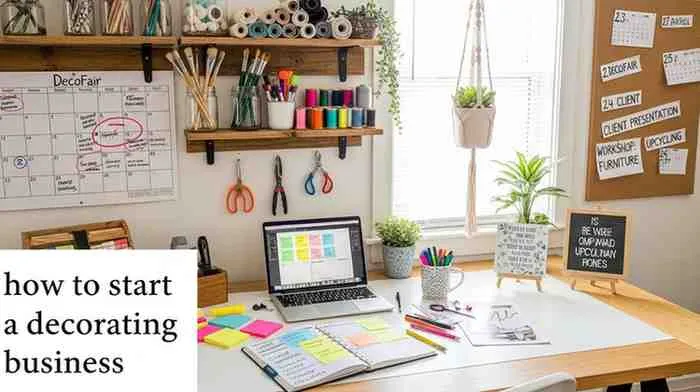
Event Planning Business Budget Breakdown
Let’s examine specific expense categories:
One-Time Startup Costs:
- Business formation and legal fees: 300 to 800 dollars
- Initial licenses and permits: 100 to 500 dollars
- Logo design and branding: 200 to 2,000 dollars
- Website development: 500 to 3,000 dollars
- Initial inventory purchase: 1,000 to 10,000 dollars
- Equipment (ladders, tools, storage): 300 to 1,500 dollars
- Marketing materials: 200 to 800 dollars
Monthly Operating Expenses:
- Insurance: 50 to 200 dollars monthly
- Website hosting and maintenance: 20 to 100 dollars monthly
- Storage space (if needed): 100 to 500 dollars monthly
- Marketing and advertising: 100 to 500 dollars monthly
- Vehicle expenses: 150 to 400 dollars monthly
- Software subscriptions: 30 to 150 dollars monthly
- Miscellaneous supplies: 100 to 300 dollars monthly
Hidden Costs to Consider:
When people ask “What are common hidden costs when starting an event planning business?”, several often-overlooked expenses include:
- Sample installations and styled shoots for portfolio building
- Damaged or lost inventory replacement
- Travel time and mileage between venues
- Payment processing fees (typically 3 percent per transaction)
- Continuing education and industry certifications
- Professional association memberships
- Accountant and bookkeeping services
- Backup equipment and emergency supplies
Building a financial cushion to cover three to six months of operating expenses is wise, especially since event businesses often experience seasonal fluctuations.
Step 4: Build Your Inventory Strategically
Your décor inventory represents one of your largest investments. Approach this strategically rather than impulsively purchasing items that catch your eye.
Essential Starting Inventory:
Focus on versatile pieces that work across multiple event types and color schemes:
- Quality table linens in neutral colors (white, ivory, black)
- Chair covers and sashes
- Centerpiece containers and vases in various heights
- LED candles and lighting elements
- Decorative fabric like tulle, organza, and burlap
- Basic floral supplies (foam, wire, ribbon)
- Assorted frames and signage materials
- Backdrop stands and draping materials
Smart Inventory Management:
Rather than purchasing everything upfront, consider:
- Starting with one color palette or theme and expanding gradually
- Renting specialized items for initial events until you establish demand
- Partnering with rental companies for larger pieces
- Buying discontinued or sale items from party supply wholesalers
- Creating relationships with vendors who offer decorator discounts
Track which items you use most frequently and invest in owning multiples of high-demand pieces while continuing to rent specialty items used rarely.
Step 5: Establish Your Pricing Structure
Pricing your services appropriately is crucial for profitability and sustainability. Many new decorators undercharge initially, creating unsustainable business models and devaluing their expertise.
Pricing Models for Event Decorators:
Hourly Rate: Charge a set hourly rate for your time, typically ranging from 50 to 150 dollars per hour depending on your experience and market. This works well for consultations and smaller projects.
Flat Package Pricing: Create tiered packages for common event types. For example, wedding decoration packages might include:
- Basic Package: 1,500 to 3,000 dollars
- Standard Package: 3,000 to 6,000 dollars
- Premium Package: 6,000 to 12,000 dollars plus
Percentage of Event Budget: Some decorators charge 10 to 20 percent of the total décor budget, providing flexibility for varying client budgets.
Cost-Plus Pricing: Calculate your actual costs for materials, rental items, and labor, then add your desired profit margin (typically 30 to 50 percent markup on items, plus labor).
Factors Affecting Your Rates:
- Your geographic location and local market rates
- Your experience level and portfolio quality
- Event complexity and customization required
- Setup and breakdown time requirements
- Distance to venue and travel time
- Specialty skills like floral design or balloon artistry
Research competitor pricing in your area, but don’t compete solely on price. Emphasize the value, creativity, and stress-free experience you provide rather than being the cheapest option.
Step 6: Create a Strong Brand Identity
Your brand is more than just a logo—it’s the complete experience clients have with your business and how you’re perceived in the marketplace.
Develop Your Visual Brand:
- Professional logo that reflects your style and target market
- Consistent color palette used across all materials
- Branded templates for proposals, contracts, and invoices
- High-quality business cards and promotional materials
- Cohesive social media aesthetics
Define Your Brand Voice:
Are you sophisticated and elegant, fun and whimsical, modern and minimalist, or warm and approachable? Your brand voice should resonate with your ideal clients and remain consistent across all communication channels.
Build Your Portfolio:
Before landing your first paying client, you need compelling portfolio images. Consider:
- Offering free or heavily discounted decorating for friends’ events in exchange for professional photos
- Collaborating with photographers, venues, and other vendors on styled shoots
- Documenting any volunteer decorating work
- Creating inspiration boards and design concepts even without physical installations
Invest in professional photography—beautiful images are your most powerful marketing tool in this visual industry.
Step 7: Develop Your Marketing Strategy
Can I Start an Event Planning Business From Home?
Absolutely! A home-based event planning business offers significant advantages including low overhead costs, flexibility, and the ability to start part-time while maintaining other income sources. Your clients meet you at their venues, not your office, making a commercial space unnecessary initially.
Building Your Online Presence:
In today’s digital world, your online presence often creates the first impression for potential clients.
Professional Website: Your website should include:
- Portfolio gallery showcasing your best work
- Clear service descriptions and pricing information
- About page telling your story and establishing credibility
- Contact information and inquiry form
- Testimonials from satisfied clients
- Blog sharing decorating tips and event inspiration
Social Media Strategy: Focus on visual platforms where event decoration content thrives:
Instagram: Post regularly (3-5 times weekly) featuring completed projects, behind-the-scenes content, inspiration boards, decorating tips, and client testimonials. Use relevant hashtags and engage with your local community.
Pinterest: Create boards featuring your work, inspiration, and tips. Pinterest serves as a long-term search engine for people planning events.
Facebook: Join local wedding and event planning groups, create a business page, and share content that provides value beyond self-promotion.
TikTok: Short videos showing transformation time-lapses, decorating hacks, and setup processes appeal to younger demographics.
How Can a New Event Planner Attract First Clients on a Budget?
When you’re just starting out with limited marketing funds, focus on these cost-effective strategies:
Leverage Personal Networks: Announce your business launch to friends, family, former colleagues, and social media connections. Offer special launch rates for early clients willing to provide testimonials and referrals.
Vendor Partnerships: Build relationships with complementary vendors including venues, caterers, photographers, DJs, and wedding planners. They can refer clients to you when decoration services are needed. Offer reciprocal referrals and consider offering commission on successful bookings.
Styled Shoots and Collaborations: Partner with other wedding vendors to create styled shoots that give everyone fresh portfolio content. These are typically published on wedding blogs, providing exposure and credibility.
Local Business Partnerships: Offer to decorate showrooms, offices, or storefronts seasonally in exchange for promotional opportunities and referrals.
Content Marketing: Write blog posts answering common decorating questions, create helpful resources, and share expertise freely. This builds authority and improves search engine visibility.
Wedding and Event Expos: These events require investment for booth space but provide direct access to couples and businesses actively planning events. Create an eye-catching booth display showcasing your style.
Community Involvement: Volunteer to decorate community events, charity fundraisers, and nonprofit galas. The exposure and goodwill can lead to paying opportunities.
Google My Business: Claim and optimize your free Google Business profile. Encourage satisfied clients to leave reviews, which significantly impacts local search visibility.
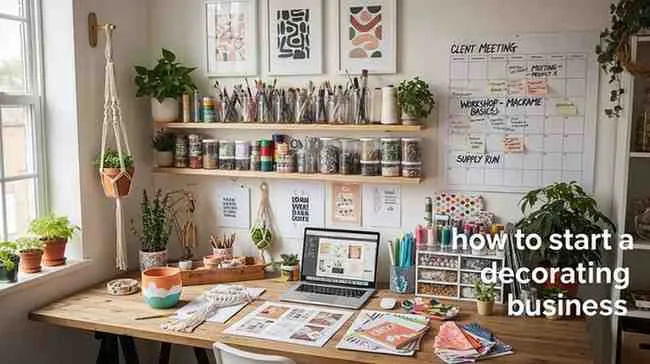
Step 8: Master Client Management and Operations
Creating Seamless Client Experiences:
From initial inquiry to post-event follow-up, every client interaction shapes your reputation and referral potential.
Inquiry Response: Respond to inquiries within 24 hours with enthusiasm and professionalism. Include relevant portfolio examples and request details about their event vision, budget, and timeline.
Consultations: Whether virtual or in-person, consultations should feel collaborative and creative. Come prepared with questions, inspiration examples, and preliminary ideas based on their initial request.
Proposals and Contracts: Provide detailed written proposals outlining services, costs, timeline, and payment terms. Use professionally written contracts that protect both parties and clearly define expectations, cancellation policies, and liabilities.
Design Boards: Create visual presentations showing your proposed design concept with images of suggested items, color palettes, and layout diagrams.
Event Timeline: Develop detailed timelines showing setup schedules, vendor coordination, and contingency plans. This professionalism reassures clients and ensures smooth execution.
Post-Event Follow-Up: Send thank-you notes, request testimonials and referrals, share professional photos when available, and maintain relationships for future events.
Operational Systems:
Implement systems that allow you to scale without chaos:
- Project management software for tracking multiple events simultaneously
- Inventory management system knowing what’s available, booked, or needs replacement
- Accounting software for invoicing, expense tracking, and financial reporting
- Scheduling tools for managing setup crews and coordinating vendor timelines
- Client relationship management (CRM) system for maintaining contact information and communication history
Real-Life Success Stories: Event Decorators Who Made It Work
Sarah’s Balloon Art Business:
Sarah started her balloon decoration business from her garage with a 1,500 dollar investment in balloon supplies and an air compressor. She focused exclusively on balloon garlands and installations, which were trending on social media. By posting daily content showing her creative designs and offering free balloon garland tutorials, she attracted her first clients entirely through Instagram. Within 18 months, she was earning six figures annually and had hired two assistants. Her advice: “Specialize in one thing, become known as the expert in that one thing, and document everything for social media.”
Marcus and Jennifer’s Wedding Décor Company:
This husband-and-wife team launched their wedding decoration business while both working full-time jobs. They started by offering services only for Saturday weddings, allowing them to maintain income stability while building their business. They invested 8,000 dollars initially, focusing on one signature style (rustic elegance) and partnering with three wedding venues that didn’t have in-house decorating teams. After two years of consistent weekend work and strong reviews, they transitioned to full-time operations. Their key insight: “Don’t quit your day job immediately. Build the business evenings and weekends until it’s consistently generating enough income to replace your salary.”
Elena’s Corporate Event Decorating:
Elena identified a gap in her market for corporate event decoration. While many decorators focused on weddings, few specifically served businesses. She invested 12,000 dollars in modern, sophisticated décor items and marketed directly to corporate event planners and businesses. Her professional background in corporate management helped her understand this market’s needs: reliability, brand alignment, and polished aesthetics without overly romantic or whimsical elements. She now works primarily with repeat corporate clients on annual conferences, product launches, and company celebrations. Her wisdom: “Find the niche others are overlooking. Weddings are beautiful but incredibly competitive. I found my market by looking where others weren’t.”
Advantages and Challenges of Starting a Decorating Business
Advantages
Creative Freedom: You’re paid to bring beautiful visions to life and exercise your artistic talents daily. Each event presents new creative challenges and opportunities.
Flexibility: Especially when starting small business event planning operations from home, you control your schedule and can balance work with personal commitments.
Low Barrier to Entry: Compared to many businesses, you can start a decorating business with relatively modest investment and minimal specialized education.
Scalability: Begin as a solo operation and scale to a full team as demand grows. You can expand services, target new markets, or specialize further as your business evolves.
Rewarding Work: Being part of milestone celebrations and creating memorable experiences for clients provides genuine satisfaction beyond financial rewards.
Recurring Revenue Potential: Build relationships with venues and corporate clients for consistent, repeat business rather than constantly seeking new clients.
Challenges
Physical Demands: Event setup involves heavy lifting, long hours on your feet, and working in various weather conditions. The work is physically taxing, particularly during busy seasons.
Irregular Income: Event businesses typically experience seasonal fluctuations, with busy periods (wedding season, holidays) and slower times requiring careful financial management.
Weekend and Evening Work: Events happen when people aren’t working—primarily evenings, weekends, and holidays. Be prepared to work while others celebrate.
Client Management: Managing expectations, handling last-minute changes, and occasionally dealing with difficult clients requires patience and excellent communication skills.
Competition: The event industry is crowded, particularly for weddings. Standing out requires exceptional work, consistent marketing, and strong relationship-building.
Inventory Management: Storing, organizing, maintaining, and tracking inventory becomes increasingly complex as your business grows.
Last-Minute Stress: Despite careful planning, events involve unpredictable elements—weather changes, vendor issues, venue problems—requiring quick problem-solving.

Frequently Asked Questions
Do I Need a Degree to Start an Event Decorating Business?
No formal degree is required to start an event decorating business. While degrees in event management, interior design, or hospitality can provide valuable knowledge and credibility, they’re not mandatory. What matters most is your eye for design, practical skills, business acumen, and ability to execute client visions. Consider certifications from organizations like the International Live Events Association or Association for Event Professionals if you want formal credentials, but many successful decorators are self-taught.
How Long Does It Take to Become Profitable?
Timeline to profitability varies widely based on your initial investment, marketing effectiveness, and market conditions. Businesses that start very lean and leverage existing networks might achieve profitability within the first few months. Most event decorating businesses reach consistent profitability within 12 to 24 months as they build reputation, refine operations, and establish repeat client relationships. Part-time businesses naturally take longer to reach significant profit levels than full-time ventures.
Should I Offer Event Planning Services Alongside Decorating?
This depends on your skills, interests, and market demand. Event coordination services naturally complement decoration work and can increase per-event revenue. However, planning requires different skills (timeline management, vendor coordination, day-of execution) beyond design and installation. Many decorators successfully partner with event planners rather than offering planning themselves, allowing each to focus on their expertise. If you do expand into planning, ensure you’re properly trained and insured for these additional responsibilities.
How Do I Handle Contracts and Deposits?
Always use written contracts for every client engagement, regardless of relationship or event size. Your contract should specify services provided, payment terms, cancellation policies, liability limitations, and any conditions or assumptions. Require deposits (typically 25 to 50 percent) at contract signing to reserve your services and cover initial expenses. Collect final payment before or at the event—never after. Consult with a business attorney to create contracts appropriate for your services and location.
What If Something Goes Wrong at an Event?
Despite meticulous planning, issues occasionally arise—items break during transport, venues aren’t prepared as promised, weather affects outdoor setups, or clients change their minds at the last minute. Maintain calm professionalism, focus on solutions rather than problems, and always bring backup supplies and contingency plans. Your ability to handle challenges gracefully builds reputation and client trust. This is why insurance and clear contracts defining your scope and limitations are essential.
Can I Start This Business Part-Time?
Absolutely. Many successful decorators began part-time while maintaining other employment. Starting small business event planning operations part-time reduces financial pressure and allows you to test your market, develop skills, and build portfolio before committing fully. Be realistic about your capacity—don’t overbook yourself and deliver poor service. As your part-time business consistently generates income and demand increases, you can transition to full-time operations.
Conclusion: Your Decorating Business Journey Starts Now
Starting a decorating business offers an exciting opportunity to combine creativity with entrepreneurship, building a venture that brings joy to clients while providing personal and financial rewards. While the path requires dedication, strategic planning, and hard work, the relatively accessible entry point makes this dream achievable for aspiring business owners.
Remember these key takeaways as you launch your event decorating business:
Start with a solid foundation by creating a comprehensive business plan, establishing proper legal structure, and securing appropriate insurance. Understand your actual startup costs and create realistic budgets that account for both obvious and hidden expenses. Begin with strategic inventory purchases focusing on versatile pieces, and price your services to ensure profitability and sustainability.
Build strong systems from the beginning for client management, operations, and financial tracking. Invest in your brand and online presence—beautiful photography and consistent marketing are essential in this visual industry. Focus on delivering exceptional experiences that generate referrals and repeat business rather than constantly chasing new clients.
Don’t let perfectionism prevent you from starting. You’ll learn invaluable lessons from actual client work that no amount of planning can teach. Begin with the resources you have, deliver outstanding service, reinvest profits strategically, and grow at a sustainable pace.
The event industry needs talented decorators who bring vision, reliability, and passion to their work. If you’re ready to transform your creative talents into a thriving business, take the first step today.
Ready to Launch Your Decorating Business?
Start by creating your business plan this week. Download a free template, research your local licensing requirements, and begin building your portfolio. Connect with other event professionals in your area, join industry groups on social media, and immerse yourself in wedding and event inspiration.
What’s stopping you from starting your decorating business? Share your questions, concerns, or progress in the comments below. If you found this guide helpful, share it with other aspiring event entrepreneurs and bookmark it for reference as you build your business.
Your journey to becoming a successful event decorator starts with a single decision—to begin. Make today the day you take that first step toward building the creative business you’ve always dreamed of.
Additional Resources:
- Small Business Administration (SBA): Free business planning resources and mentorship programs
- SCORE: Free business counseling from experienced entrepreneurs
- Local Chamber of Commerce: Networking opportunities and market insights
- Wedding and event planning associations: Industry education and certification programs
